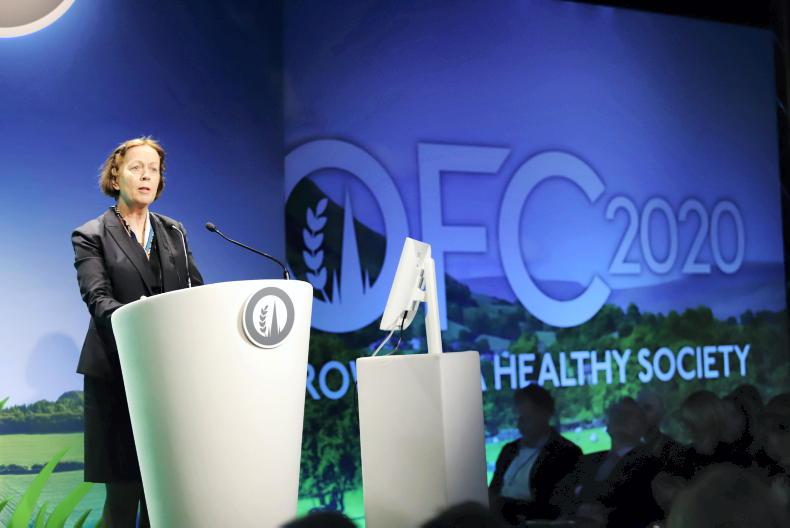Prof Alice Stanton of the Royal College of Surgeons and her colleagues are to be commended for calling out serious concerns underpinning the scientific finding published in The Lancet medical journal that red meat is harmful. The finding was published in The Lancet as part of a well-respected study on The Global Burden of Disease.

Prof Alice Stanton from the Royal College of Surgeons in Ireland.
As Anne Finnegan reports this week, in response to the concerns raised by Prof Stanton and her colleagues, the lead author of the research published in The Lancet has confirmed that not only are their findings not reliable, but that red meat is in fact protective against a type of stroke.
However, according to The Lancet medical journal, where the findings against red meat remain published for any and all to read, red meat remains harmful. Until the initial research is retracted, it will continue to be used and referenced in the same way as all credible published research.
The original finding emanated from a highly respected, long-standing study that is widely used in health policy formation. It is credible and therefore confers credibility on to this published research.
Until The Lancet and The Global Burden of Disease collaborators retract this research, it will continue to undermine the consumption of red meat and the production of red meat. It may also have serious negative consequences for human health.
There is no quantification of the damage that this research has done to the red meat sector. At a minimum, it must be retracted – but serious questions remain as to how such a respected study could produce such flawed findings.
Food vision rethink required
As Jack Kennedy reports in this week's edition, in a week where EU member states were debating how to increase food production, the Food Vision dairy group was debating a scheme that would pay farmers to exit one of the most environmentally sustainable dairy production models in the world.

Minister McConalogue chairs second implementation meeting for Food Vision 2030 on Thursday.
There is a strong argument for the dairy group to be paused and for the wider Food Vision group to be reconvened. Their remit was to assess how Irish agriculture can respond to the shock that the war in Ukraine has delivered to food security. To simply ignore the extent to which the global production landscape has changed and carry on as normal is not credible.
Meanwhile, talks of a cull scheme are affecting decisions at farm level. For some, there is a hesitancy to ease fodder demand by reducing stocking rate in the fear that 2022 will be a reference period on which future cow numbers will be based. Minister McConalogue should quickly give comfort on this issue.
Prof Alice Stanton of the Royal College of Surgeons and her colleagues are to be commended for calling out serious concerns underpinning the scientific finding published in The Lancet medical journal that red meat is harmful. The finding was published in The Lancet as part of a well-respected study on The Global Burden of Disease.

Prof Alice Stanton from the Royal College of Surgeons in Ireland.
As Anne Finnegan reports this week, in response to the concerns raised by Prof Stanton and her colleagues, the lead author of the research published in The Lancet has confirmed that not only are their findings not reliable, but that red meat is in fact protective against a type of stroke.
However, according to The Lancet medical journal, where the findings against red meat remain published for any and all to read, red meat remains harmful. Until the initial research is retracted, it will continue to be used and referenced in the same way as all credible published research.
The original finding emanated from a highly respected, long-standing study that is widely used in health policy formation. It is credible and therefore confers credibility on to this published research.
Until The Lancet and The Global Burden of Disease collaborators retract this research, it will continue to undermine the consumption of red meat and the production of red meat. It may also have serious negative consequences for human health.
There is no quantification of the damage that this research has done to the red meat sector. At a minimum, it must be retracted – but serious questions remain as to how such a respected study could produce such flawed findings.
Food vision rethink required
As Jack Kennedy reports in this week's edition, in a week where EU member states were debating how to increase food production, the Food Vision dairy group was debating a scheme that would pay farmers to exit one of the most environmentally sustainable dairy production models in the world.

Minister McConalogue chairs second implementation meeting for Food Vision 2030 on Thursday.
There is a strong argument for the dairy group to be paused and for the wider Food Vision group to be reconvened. Their remit was to assess how Irish agriculture can respond to the shock that the war in Ukraine has delivered to food security. To simply ignore the extent to which the global production landscape has changed and carry on as normal is not credible.
Meanwhile, talks of a cull scheme are affecting decisions at farm level. For some, there is a hesitancy to ease fodder demand by reducing stocking rate in the fear that 2022 will be a reference period on which future cow numbers will be based. Minister McConalogue should quickly give comfort on this issue.








 This is a subscriber-only article
This is a subscriber-only article












SHARING OPTIONS: